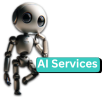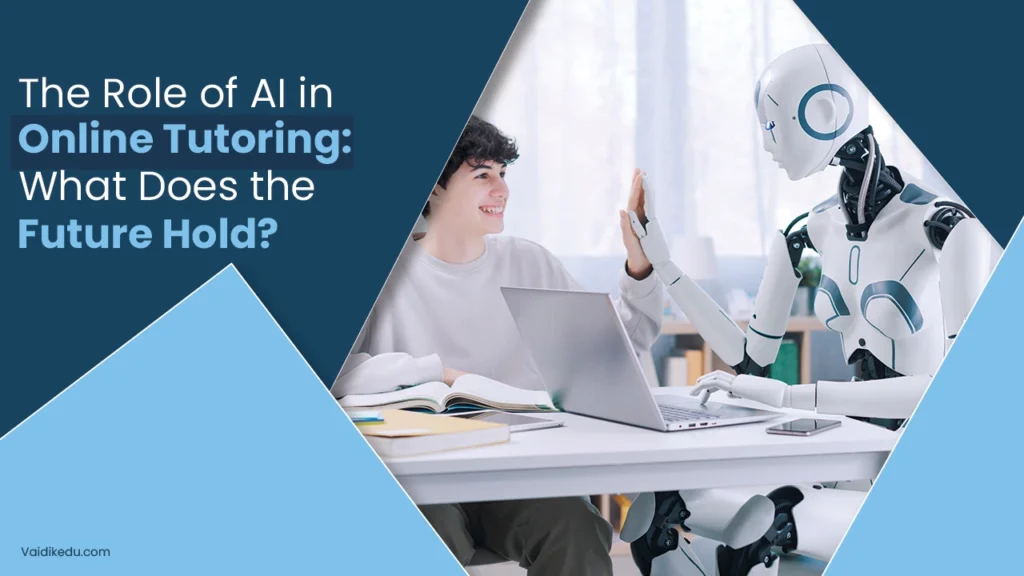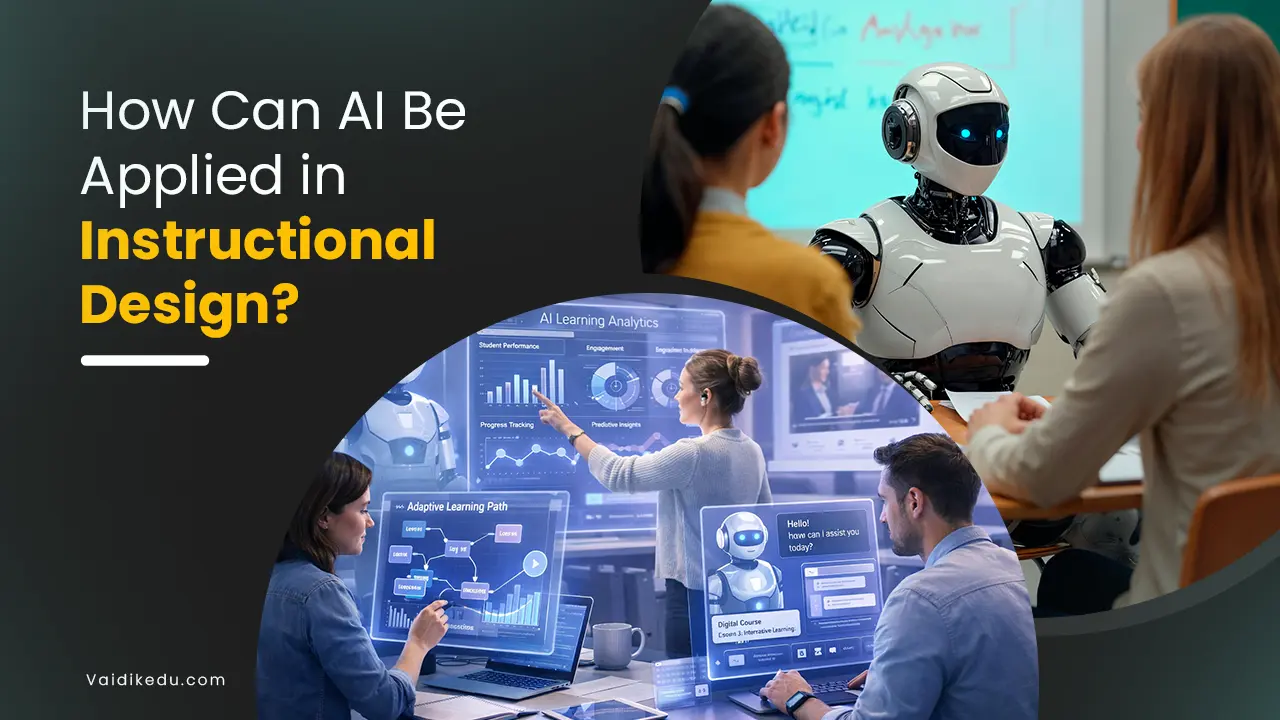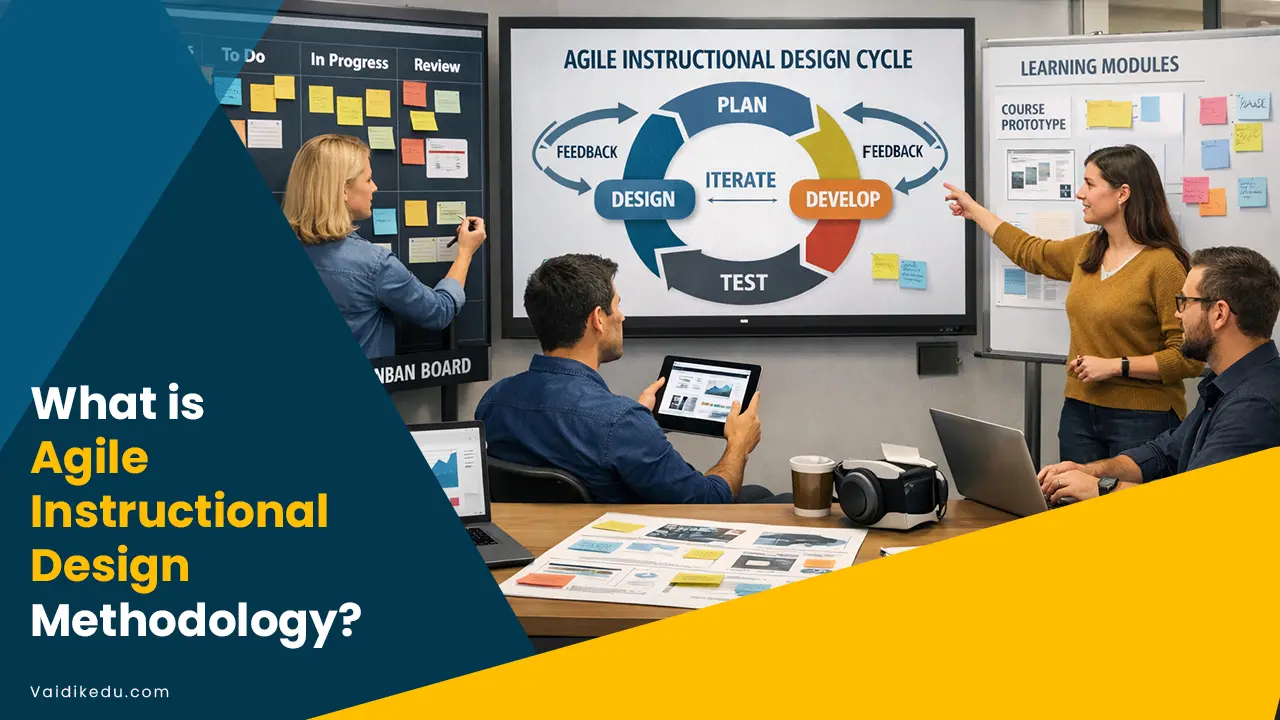As we all know, artificial intelligence (AI) has evolved greatly. It has changed various fields such as education, and tutoring, and has raised the educational system to a new level. Online teaching has become an important area that has grown exponentially in recent years.
Mainly after the COVID-19 pandemic, AI has been used to shape how students learn and interact with educators. As AI becomes more accessible, in this blog, we explore the role of AI in online learning, its current use, the potential benefits, challenges, and the future of this dynamic combination of technology and education.
Growth of Online Tutoring
Before delving into the role of AI, it is important to understand the evolution of online teaching. In traditional teaching, closeness between students and educators is required. This limits access and scalability. With the advent of the internet, online platforms are starting to connect students and tutors across the world. Breaking down geographic barriers and making learning flexible, however, early platforms often lack personal and interactive features. Integrating AI into online teaching platforms helps overcome these limitations by offering adaptive data-driven solutions.
Applications of IA in Online Learning:
1. Personalized Learning Experience: IA algorithms analyze learning behavior. Students’ strengths and weaknesses in order to adapt the classroom to their specific needs. Platforms like Khan Academy and Duolingo use IA to adjust question difficulty and recommend topics based on student performance.
2. Automated Feedback Assessment: Forums with IA technology provide instant feedback on homework, questionnaires, and tests. For example, Grammar uses IA to correct grammar and improve writing. While a platform like ALEKS assesses two students’ knowledge gaps and recommends specific areas for improvement.
3. Virtual Tutors And Chatbots: Virtual tutors with IA technology, such as IBM’s Watson Tutor, provide 24 hours a day, 7 days a-week support for chatbots that mimic human interactions to Answer questions, explain concepts, and guide students through learning materials. This ensures that students receive help when needed.
4. Teaching And Translation: Language learning platforms such as Rosetta Stone and Babbel use IA for speech recognition. Real-time pronunciation correction and translation allow for an immersive language learning experience.
5. Gamification And Engagement: IA improves gamified learning by analyzing student interactions and dynamically adjusting game elements to maintain engagement. Gamification platforms like Quizizz and Kahoot! Use IA to promote an interactive and fun learning environment.
Advantages of AI in Online Teaching:
1. Personal improvement: AI’s ability to analyze huge amounts of data makes it possible to create highly personalized learning experiences. Students can progress at their own pace. They focus on areas that need improvement and leave the subjects in which they are experts.
2. Increased Accessibility: AI-powered platform helps students access quality education in remote or underserved areas. Virtual tutors and automation tools reduce the need for physical infrastructure and reduce costs and barriers to attending school.
3. Use Time Efficiently: By automating administrative tasks like grading and scheduling, AI frees up educators to focus on teaching and mentoring. Students benefit from immediate feedback and real-time progress tracking.
4. Supports A Variety of Learning Styles: AI supports a variety of learning styles by providing multimedia processing, interactive simulation, and adaptive assessment. Regardless of whether students like to see audio descriptions or hands-on exercises, AI can meet their needs.
5. Continuous improvement: AI systems learn and improve over time by improving advice and intervention. This iterative process ensures that students and educators have access to the most effective tools and resources.
Ethical Challenges And Considerations:
Although AI has enormous potential, integrating it with online teaching is not without its challenges. Addressing these issues is critical to creating a balanced and effective educational ecosystem.
1. Privacy And Data Security: AI collects and analyzes the data of students and provides them with a personalized experience. It also makes sure that the privacy and security of this data is important.
2. Bias in Algorithms: AI systems can unintentionally create biases that exist in the data they have been trained on. This may lead to unfair treatment or unequal access to opportunities for certain groups of students.
3. Too Much Reliance on Technology: Too much reliance on AI tools can reduce human interaction in education. This is essential for promoting critical thinking skills. sympathy, and social skills.
4. Digital Department: Some students do not have access to the tools and internet connections needed for AI-powered learning. Bridging the digital divide is essential to ensuring equal access to education.
5. Operating Expenses: AI systems can be expensive to develop and maintain. This makes implementing these technologies a challenge for small institutions or underfunded schools.
The Future of AI in Online Teaching:
The future of AI in online teaching is promising. Several trends are shaping the trend:
1. Too Much Personalization: Advances in AI will allow for more accurate personalization. Taking into account not only academic results but also emotional and social factors. The adaptive learning system provides a highly customized learning path for each student.
2. Immersive Learning Environment: It will be combined with technologies such as AI, virtual reality (VR), and augmented reality (AR) to create an immersive learning experience. Students can explore important historical sites. Do virtual science experiments or practice language in realistic simulations.
3. AI-powered Collaborative Learning: In the future, AI systems will facilitate collaborative learning by connecting students with peers who have similar goals or have complementary skills. Group projects and discussions will be enhanced through AI-powered matching and moderation.
4. Integrate Lifelong Learning: AI will extend beyond K-12 and higher education. It supports lifelong learning and professional development. Individualized learning plans help individuals develop or enhance their skills to be competitive in the evolving job market.
5. Ethical And Transparent: AI As awareness of ethical concerns increases, it will become important to develop transparent and accountable AI systems. This includes reducing bias, guaranteed data privacy, and strengthening trust between users.
6. Blended Learning Format: AI will complement human learners and not replace them. A hybrid model that combines AI-powered tools with human interaction provides the best of both worlds. This ensures that students receive personal support alongside guidance and mentoring.
Conclusion:
AI is reshaping the online teaching landscape and making education more personal, accessible and effective. From virtual tutors to gamified learning platforms, AI is improving the way students learn and interact with educational materials. But such integration must be done with caution. It addresses challenges such as data privacy.
Algorithm bias and the digital divide As we look to the future, the role of AI in online teaching will continue to expand due to technological advances and the demand for more flexible and inclusive education. With a balance between innovation and ethical considerations, AI has the potential to unlock new possibilities. For learners and educators around the world.
Frequently Asked Questions
AI tailors learning to each individual. Provide automatic feedback and increase access by providing virtual learners and adaptive learning tools.
AI analyzes student performance and preferences to tailor lessons. Recommended resources and adjust the pace of learning.
Key challenges include data privacy concerns. Algorithm bias Too much reliance on technology digital divide and high operating costs.
AI is an extension of human learners. Not a replacement Hybrid models that combine AI tools and human interaction provide the best results.
The future consists of personalized learning. virtual environment Collaboration tools Integrating lifelong learning and ethical AI development.









